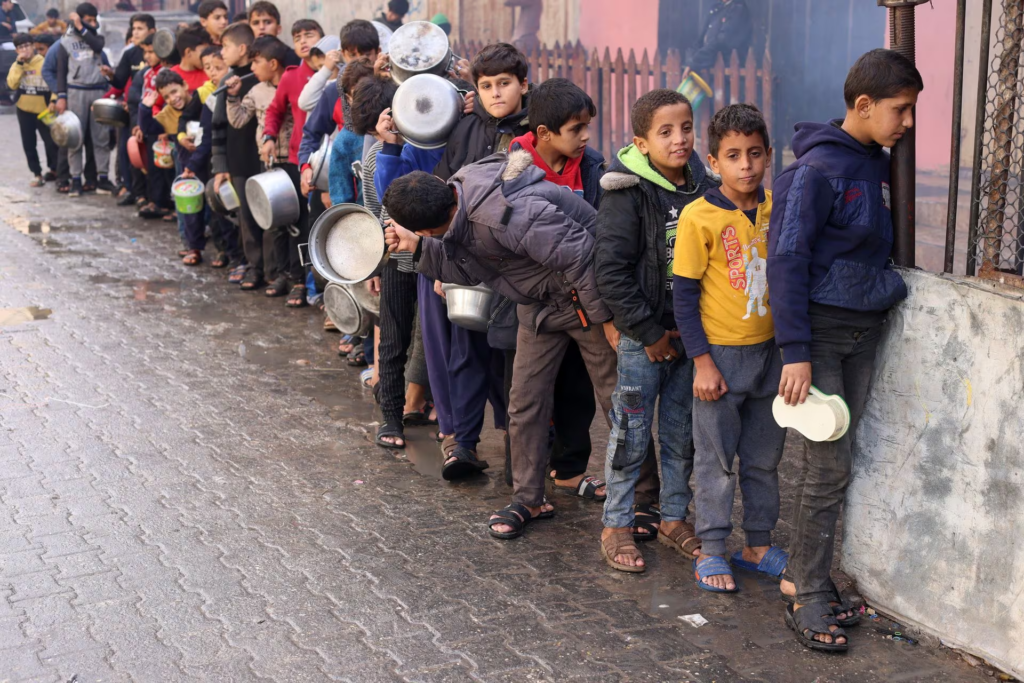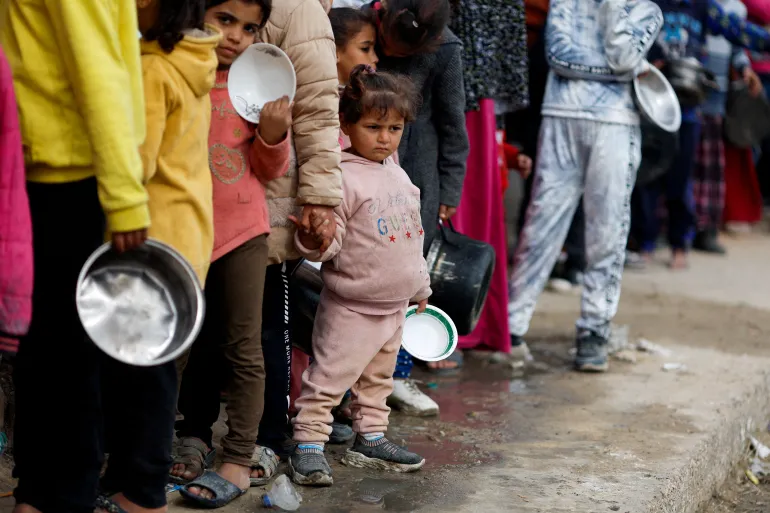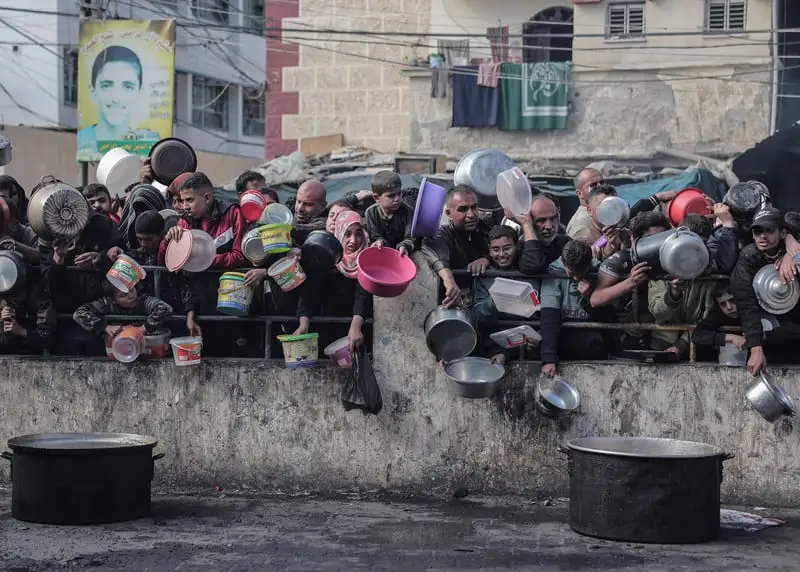A recent study spanning three countries indicates that Israel habitually without valid justification obstructs humanitarian efforts for Gaza, resulting in famine-like conditions in Gaza.
Israel has generated “famine-like conditions” in the Gaza Strip “while obstructing and undermining the humanitarian response”, according to a new report by humanitarian group Refugees International.
The group’s research in Egypt, Jordan and Israel revealed that Tel Aviv “consistently and groundlessly impeded aid operations within Gaza, blocked legitimate relief operations and resisted implementing measures that would genuinely enhance the flow of humanitarian aid into Gaza”.

The report was based on interviews with dozens of government officials, humanitarian workers, and NGO staff engaged in on-the-ground aid efforts from the three countries.
“Our research makes clear that conditions inside of Gaza are apocalyptic,” said the report released on Thursday.
“After five months of war, Palestinians are struggling to find adequate food, water, shelter, and basic medicine. Famine-level hunger is already widespread and worsening.”

Refugees International also said that Israel was “demonstrably failing to comply” with legally binding provisional measures ordered on 26th January by the International Court of Justice (ICJ) to facilitate the flow of aid and lessen humanitarian suffering in Gaza.
In its defence to the ICJ, Israel argued it has actively eliminated bottlenecks and improved the entrance and distribution of aid in Gaza.
The report revealed that Israeli authorities have “erected unnecessary hurdles, complicated logistical processes, and an unpredictable vetting system, rendering the inspection regime overwhelmingly burdensome with layers of bureaucracy and inspection and limited working hours”.
While Israel claimed that it expanded capacity for aid delivery to Gaza, the average number of trucks delivered in February actually fell by 50 percent compared with the previous month, according to United Nations data cited in the report.
Critical crossings like the northern Erez and Al-Muntar – known as Karni to Israelis – remain closed, impeding access to the north of Gaza.
The report said Israel failed to comply with the terms of a National Security Memorandum (NSM-20) issued in February by United States President Joe Biden’s administration that require countries receiving US security assistance to actively facilitate the delivery of humanitarian assistance in Gaza.
Logistical Issues
Refugees International discovered that logistical challenges in Egypt and Jordan are hindering the distribution of critical aid to individuals in Gaza.
The Rafah crossing between Gaza and Egypt, originally designed for commercial purposes, lacks the capacity to handle the significant volume of aid needed by the region. Additionally, Egyptian authorities have discouraged extensive humanitarian efforts in the northern Sinai, citing its status as a military zone.
According to the report, Egypt responded to pressure from Israel to open its borders to Palestinian refugees by increasing oversight and regulation of access for aid organizations in the border area, as well as monitoring the movement of individuals to and from Gaza.
Charities delivering aid from Jordan’s capital, Amman, informed Refugees International that Israeli authorities have introduced new and challenging obstacles, previously absent, and have yet to provide clear standard operating procedures to Jordanian authorities.
Furthermore, new barriers, such as additional inspection requirements, are impeding aid distribution at the Allenby Bridge crossing into Israel and the Karem Abu Salem (Kerem Shalom) border crossing.
Calls for ceasefire
The report called on the warring parties in Gaza to “immediately agree to a mutual ceasefire and release of all hostages” as well as “adhere to international humanitarian law and refrain from any action that threatens the rights, safety, and dignity of both Palestinian and Israeli civilians”.
The United States, Qatar and Egypt have spent weeks trying to broker an agreement in which Hamas would release Israeli captives in return for a six-week ceasefire, the release of some Palestinian prisoners and more aid to Gaza.
But three days of negotiations with Hamas this week over a ceasefire in Gaza have failed to achieve a breakthrough, less than a week before the start of the Muslim holy month of Ramadan – the informal deadline for a deal.
Refugees International also called for an end to attacks on civilians and infrastructure and for allowing the UN and aid agencies access to populations in need.
Among other recommendations, it said Israel must refrain from “a military offensive in Rafah, and other actions that could displace Palestinians further or otherwise worsen the humanitarian crisis”.
The Israeli military has been preparing for a long-threatened ground invasion in the southern Gaza border city of Rafah, where more than half of the enclave’s 2.3 million population has been forcibly displaced.
At least 30,800 Palestinians have been killed and 72,198 wounded in Israeli attacks on Gaza since October 7. The death toll in Israel from the October 7 Hamas attacks stands at 1,139.
Advertisement

